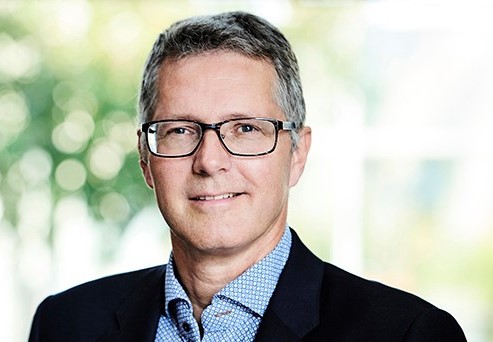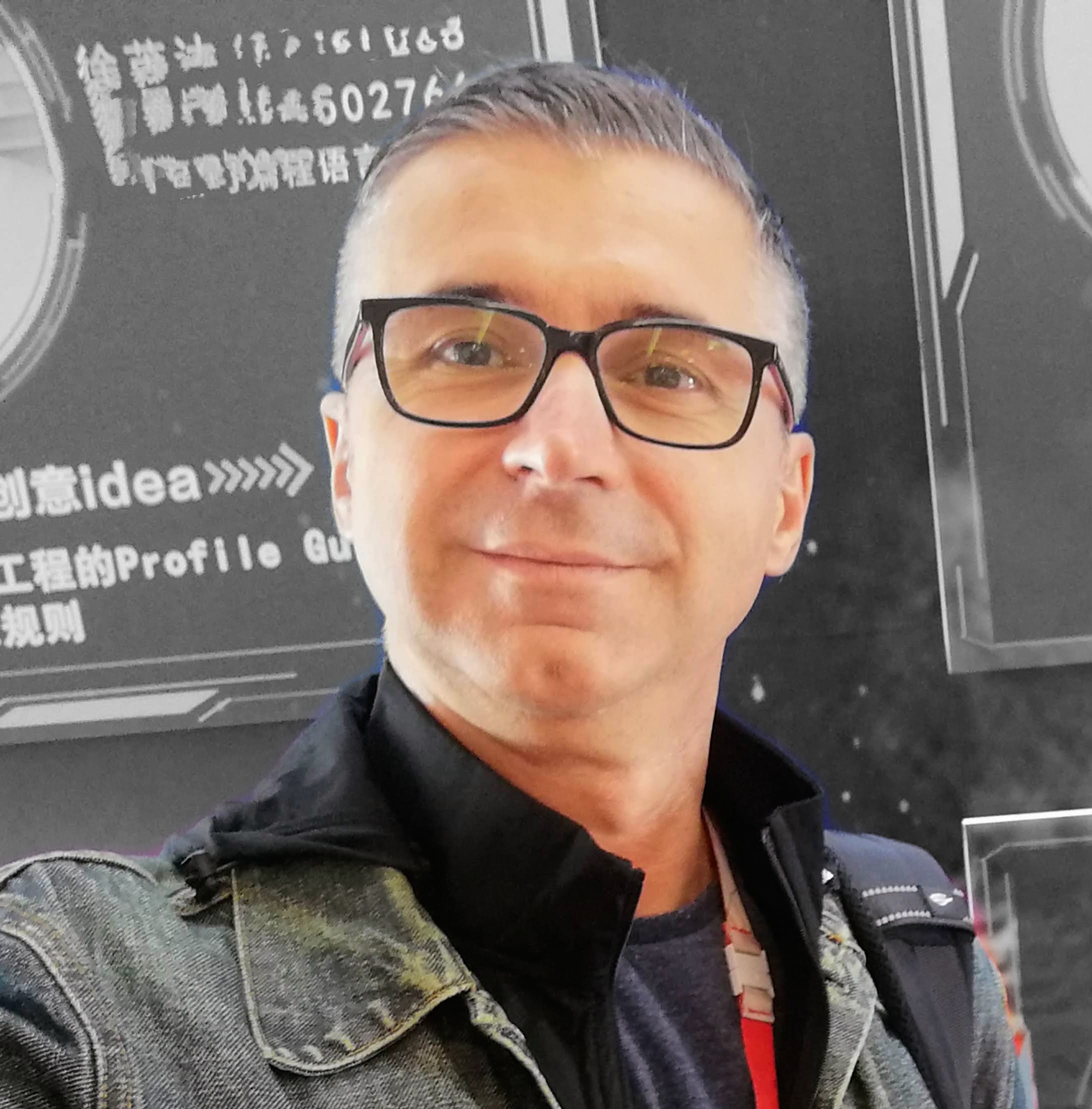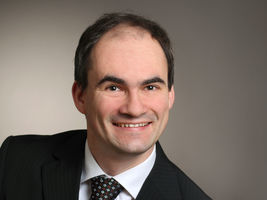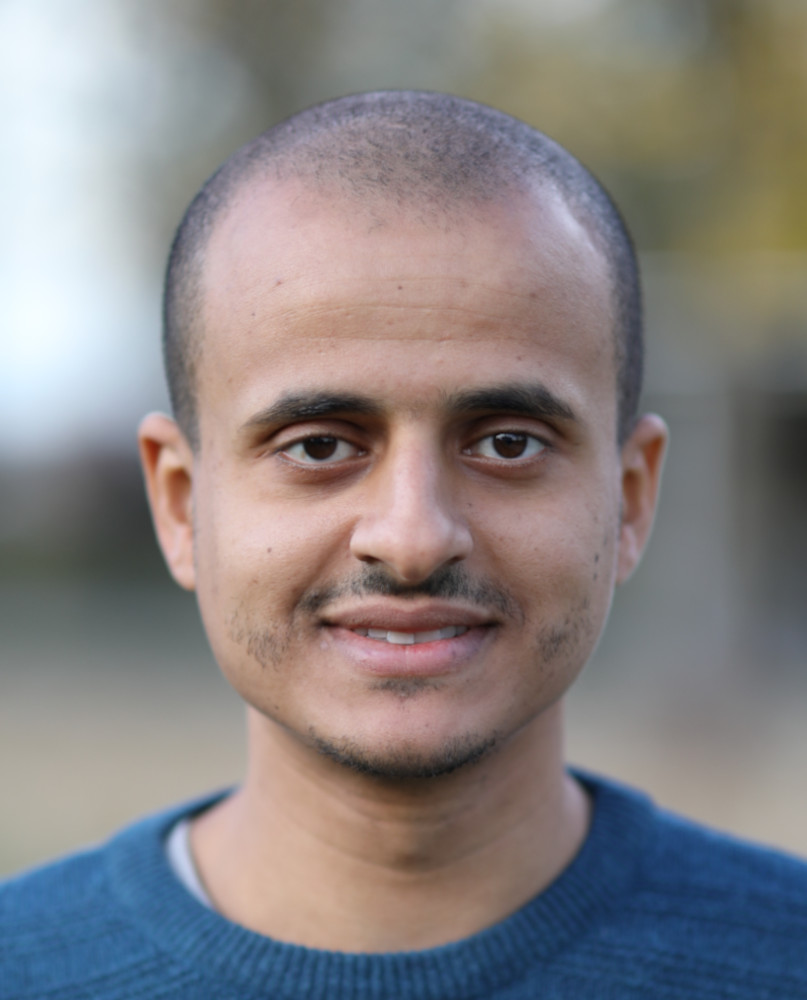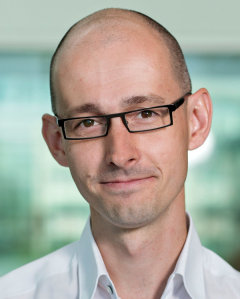We are excited to announce five invited speakers from across the STAF’23 conferences (ECMFA, ICGT, and TAP):
TAP’23: Kim G. Larsen, Aalborg University (Denmark)
Symbolic, Statistical and Randomized Engines in UPPAAL
Tuesday 11am, Oak
UPPAAL provides a tool-suite supporting model checking, performance analysis, testing, synthesis and learning for real-time systems. Based on the underlying modeling formalism of timed automata, significant effort has been put into development and implementation of efficient datastructures and algorithmic methods. By now these methods have resulted in a variety of symbolic, statistical and randomized engines.
In the talk I will present the three algorithmic methods and highlight their particular benefits individually and in combinations. This include: 1) Randomized methods are useful in early phases of development for fast discovery leaving the use of expensive symbolic verification to the end of development. 2) Combining randomized and statistical methods we have proposed a new falsification testing methodology that is aware of expected system usage and underlying risks associated with different faulty behaviors, allowing for a ranking of counterexamples based on their expected impact. 3) UPPAAL Stratego combines symbolic and statistical (learning) methods for constructing safe and near-optimal control strategies.
We shall also report on current effort made towards a hierarchical modelling formalism, where first prototypes are being obtained using model transformations to the existing non-hierarchical formalism.
Finally during the talk we will provide on-line demo of the new release UPPAAL 5.0.
ICGT’23: Dan Ghica, Huawei Research and University of Birmingham (UK)
Syntactic trinitarianism: terms, graphs, diagrams
Wednesday 9am, Oak
The concept of ‘syntax’ is commonly understood as the structure hidden in linear sequences of tokens, which in language and logic we commonly call ‘terms’. However, for the purpose of analysis and transformation, compilers use more efficient data structures to represent syntax, namely graphs. The gap between the linear (term) and graph syntax is elegantly bridged by a third formalism, namely that of string diagrams, a planar representation of terms in the categorical representation of syntax. In this tutorial talk I will show how the interplay of terms, graphs, and diagrams can help specify and implement complex analyses and transformations in compilers for higher-order programming languages, such as type inference, automatic differentiation, or closure conversion. This methodology is at the foundation of a new industrial-strength compiler being implemented currently at Huawei.
Most of the material I will discuss is based on the recent tutorial paper “Hierarchical string diagrams and applications” jointly with Fabio Zanasi (https://arxiv.org/abs/2305.18945).
TAP’23: Mattias Ulbrich, Karlsruhe Institute of Technology (Germany)
KeY: A Verification Platform For Java
Wednesday 1:30pm, Willow
In recent years and decades, the research community has unleashed a diverse variety of approaches to formally assess and establish the correctness of programs on the source code level. It is still an active research area how the results of different verification techniques can be brought together profitably.
In this talk, I will present how the verification ecosystem surrounding the KeY tool allows one to combine a number of successful approaches. At its core, KeY is a deductive verification engine for the formal analysis of Java programs annotated with formal specifications written in the Java Modeling Language. It employs a dynamic logic calculus for Java driven by symbolic execution. We will learn about the working principles of this verification method and see how it was used to prove (or disprove) the correctness of relevant real-world Java components, for instance from the JDK.
In addition, I will present the Karlsruhe Java Verification Suite (KaJaVe), where we enriched the KeY prover infrastructure by a number of approaches that leverage other verification principles such that they can be used in combination with the deductive verifier.
ICGT’23: Mohammad Abdulaziz, King’s College London (UK)
Formal Mathematics: Matching Algorithms as a Case Study
Thursday 1:30pm, Willow
A formal proof is a proof within an axiomatic system, where proof steps are either applications of axioms or applications of formally proven statements. Formal proofs have a long history within mathematics, starting with Euclid’s element’s which had an axiomatic system for geometrical reasoning. The main motivation of constructing a formal proof is obtaining unambiguous detailed proofs that can be mechanically checked. The advent of computer-based tools for formal proof, such as automatic and interactive theorem provers, made it feasible to produce formal versions of proofs that would otherwise be impossible.
A matching in an undirected graph is a subset of the edges of the graph s.t. no two edges are incident on the same vertex. In addition to the rich mathematical structure exhibited by matchings, algorithms to compute matchings have many applications, ranging from matching kidney donors and recipients to the allocation of advertisers to users of search engines.
In this talk, after giving an overview of the state-of-the-art, I will discuss my work on applying formal proof technology to matching theory, discussing some interesting findings and the even more interesting open questions.
Biography. Mohammad Abdulaziz is a lecturer (equiv. to assistant professor) and member of the Reasoning and Planning Group at King’s College London. Before that, he was a post-doc in the Chair for Logic and Verification at Technische Universität München. His main research is in the area of formal mathematics, with a special focus on formalising theoretical CS, and the formal verification of algorithms and software.
ECMFA’23: Andrzej Wąsowski, IT University of Copenhagen (Denmark)
How I lost my faith (in language technology research)? There and back again.
Friday 9am, Oak
Modeling and language engineering have hardly ever been as successful as today. Whatever software domain you zoom into, you will find plenty external and internal modeling languages. Everybody is doing (multi-)modeling all the time. At the same time modeling has never been as invisible as it is today. Modeling is not a buzzword. Being a modeling-expert means not much, when everybody is a modeling expert.
In this talk, I will zoom in into two groups of modeling languages: reactive programming languages including behavior trees and state machines (as used in robotics) and probabilistic programming languages (as used in data science). While looking at these examples closely, I want to answer three questions: Concretely how and by whom are these modeling languages engineered? Why and how should people be taught language engineering in 2023? And, finally, how can one be a modeling researcher in 2023?
Tue 18 JulDisplayed time zone: London change
10:30 - 11:00 | |||
10:30 30mCoffee break | Coffee Break Social | ||
11:00 - 12:30 | STAF Keynote / TAP Session 1TAP Research Papers / ECMFA Technical Track / ICGT Research Papers / Keynotes at Oak Chair(s): Cristina Seceleanu Mälardalen University Remote Participants: Zoom Link, YouTube Livestream | ||
11:00 15mDay opening | TAP Conference Opening TAP Research Papers | ||
11:15 75mKeynote | Symbolic, Statistical and Randomized Engines in UPPAAL Keynotes Kim Larsen Aalborg University | ||
12:30 - 13:30 | |||
12:30 60mLunch | Lunch Social | ||
13:30 - 15:00 | TAP Session 2: Low-level code verificationTAP Research Papers at Oak Chair(s): Julien Signoles Université Paris-Saclay, CEA, List Remote Participants: Zoom Link | ||
13:30 30mTalk | BIRD: A Binary Intermediate Representation for formally verified Decompilation of x86-64 binaries TAP Research Papers P: Daniel Engel Open University Of The Netherlands, Freek Verbeek Open University of the Netherlands, The Netherlands, Binoy Ravindran Virginia Tech DOI Pre-print File Attached | ||
14:00 30mTalk | Low-level Reachability Analysis based on Formal Logic TAP Research Papers P: Nico Naus Virginia Tech, Freek Verbeek Open University of the Netherlands, The Netherlands, Marc Schoolderman Radboud University Nijmegen, Binoy Ravindran Virginia Tech DOI Pre-print | ||
14:30 30mTalk | Testing a Formally Verified Compiler TAP Research Papers P: David Monniaux CNRS/VERIMAG, Léo Gourdin Université Grenoble Alpes, Verimag, Sylvain Boulmé Grenoble Alps University / CNRS / Grenoble INP / VERIMAG, Olivier Lebeltel Université Grenoble Alpes, CNRS, Verimag DOI Pre-print | ||
15:30 - 16:30 | TAP Session 3: Formal ModelsTAP Research Papers at Oak Chair(s): Catherine Dubois ENSIIE Paris-Evry Remote Participants: Zoom Link | ||
15:30 30mTalk | Certified Logic-Based Explainable AI -- The Case of Monotonic Classifiers TAP Research Papers DOI File Attached | ||
16:00 30mTalk | Context Specification Language for Formal Verification of Consent Properties on Models and Code TAP Research Papers P: Myriam Clouet Université Paris-Saclay, CEA, List, Thibaud Antignac CNIL (Commission nationale de l’informatique et des libertés), Mathilde Arnaud Université Paris-Saclay, CEA, List, Julien Signoles Université Paris-Saclay, CEA, List DOI File Attached | ||
Wed 19 JulDisplayed time zone: London change
09:00 - 10:15 | STAF Keynote / ICGT Session 1TAP Research Papers / ECMFA Technical Track / ICGT Research Papers / Keynotes at Oak Chair(s): Maribel Fernandez King's College London Remote Participants: Zoom Link, YouTube Livestream | ||
09:00 15mDay opening | ICGT Conference Opening ICGT Research Papers File Attached | ||
09:15 60mKeynote | Syntactic trinitarianism: terms, graphs, diagrams Keynotes Dan Ghica Huawei Research and University of Birmingham Pre-print | ||
10:30 - 11:00 | |||
10:30 30mCoffee break | Coffee Break Social | ||
11:00 - 12:30 | ICGT Session 2: Specification and VerificationICGT Research Papers at Oak Chair(s): Arend Rensink University of Twente, The Netherlands Remote Participants: Zoom Link, YouTube Livestream | ||
11:00 30mTalk | Specification and Verification of a Linear-time Temporal Logic for Graph Transformation ICGT Research Papers Fabio Gadducci University of Pisa, P: Andrea Laretto Tallinn University of Technology, Davide Trotta University of Pisa DOI Pre-print File Attached | ||
11:30 30mTalk | Mechanised DPO Theory: Uniqueness of Derivations and Church-Rosser TheoremICGT Best Theory Paper ICGT Research Papers DOI | ||
12:00 30mTalk | Formalisation, Abstraction and Refinement of Bond Graphs ICGT Research Papers DOI | ||
11:15 - 12:45 | TAP Session 4: Model-based test generationTAP Research Papers at Willow Chair(s): Nico Naus Virginia Tech Remote Participants: Zoom Link | ||
11:15 30mTalk | Symbolic Observation Graph-Based Generation of Test Paths TAP Research Papers P: Kais Klai Universit Paris 13, Mohamed Taha Bennani Universty of Tunis El Manar, Jaime Arias CNRS; LIPN; Université Sorbonne Paris Nord, Jörg Desel Fernuniversität in Hagen, Hanen Ochi EFREI DOI File Attached | ||
11:45 30mTalk | Testing Languages with a Languages-as-databases ApproachTAP Best Paper TAP Research Papers DOI | ||
12:15 30mTalk | Proving Properties of Operation Contracts with Test Scenarios TAP Research Papers DOI | ||
13:30 - 15:00 | ICGT Session 3: TheoryICGT Research Papers at Oak Chair(s): Nicolas Behr CNRS, Université Paris Cité, IRIF Remote Participants: Zoom Link, YouTube Livestream | ||
13:30 30mTalk | A Monoidal View on Fixpoint Checks ICGT Research Papers Paolo Baldan University of Padova, P: Richard Eggert University of Duisburg-Essen, Barbara König University of Duisburg-Essen, Timo Matt University Duisburg-Essen, Tommaso Padoan University of Padova DOI Pre-print | ||
14:00 30mTalk | Fuzzy Presheaves are Quasitoposes ICGT Research Papers P: Aloïs Rosset Vrije Universiteit Amsterdam, Roy Overbeek Vrije Universiteit Amsterdam, Jörg Endrullis Vrije Universiteit Amsterdam DOI File Attached | ||
14:30 30mTalk | Moving a Derivation Along a Derivation Preserves the Spine ICGT Research Papers P: Hans-Jörg Kreowski University of Bremen, Sabine Kuske University of Bremen, Aaron Lye University of Bremen, Aljoscha Windhorst University of Bremen DOI | ||
13:45 - 15:15 | TAP Session 5: KeynoteKeynotes / TAP Research Papers at Willow Chair(s): Virgile Prevosto CEA Tech List Remote Participants: Zoom Link | ||
13:45 90mKeynote | KeY: A Verification Platform For Java Keynotes Mattias Ulbrich KIT | ||
15:30 - 17:00 | ICGT Session 4: Graph Transformation PropertiesICGT Research Papers / ICGT Journal-First at Oak Chair(s): Russ Harmer CNRS Remote Participants: Zoom Link, YouTube Livestream | ||
15:30 30mTalk | Finding the Right Way to Rome: Effect-oriented Graph Transformation ICGT Research Papers P: Jens Kosiol Universität Kassel, Daniel Strüber Chalmers | University of Gothenburg / Radboud University, Gabriele Taentzer Philipps-Universität Marburg, Steffen Zschaler King's College London DOI Pre-print File Attached | ||
16:00 30mTalk | Termination of Graph Transformation Systems using Weighted Subgraph CountingNominated for Best Paper ICGT Research Papers DOI Pre-print File Attached | ||
16:30 30mTalk | Extending single- to multi-variant model transformations by trace-based propagation of variability annotations ICGT Journal-First DOI File Attached | ||
15:45 - 16:45 | TAP Session 6: Abstraction and RefinementTAP Research Papers at Willow Chair(s): Matteo Cimini University of Massachusetts Lowell Remote Participants: Zoom Link | ||
15:45 30mTalk | Abstract Interpretation of Recursive Logic Definitions for Efficient Runtime Assertion CheckingTAP Best Paper TAP Research Papers P: Thibaut Benjamin Université Paris-Saclay, CEA, List, Julien Signoles Université Paris-Saclay, CEA, List DOI | ||
16:15 30mTalk | Slow Down, Move Over: A Case Study in Formal Verification, Refinement, and Testing of the Responsibility-Sensitive Safety Model for Self-Driving Cars TAP Research Papers DOI | ||
Thu 20 JulDisplayed time zone: London change
09:00 - 10:30 | ICGT Session 5: Blue Skies & Journal-FirstICGT Research Papers / ICGT Journal-First at Willow Chair(s): Detlef Plump University of York Remote Participants: Zoom Link, YouTube Livestream | ||
09:00 30mTalk | A living monograph for graph transformation ICGT Research Papers DOI File Attached | ||
09:30 30mTalk | Graph Rewriting for Graph Neural NetworksNominated for Best Paper ICGT Research Papers DOI File Attached | ||
10:00 30mTalk | Compositionality of Rewriting Rules with Conditions ICGT Journal-First DOI Media Attached | ||
09:30 - 10:45 | ECMFA Session 1: Tools and ModularityECMFA Technical Track at Oak Chair(s): Jesús Sánchez Cuadrado Universidad de Murcia Remote Participants: Zoom Link | ||
09:30 15mDay opening | ECMFA Conference Opening ECMFA Technical Track | ||
09:45 30mTalk | Concern-Oriented Use Cases ECMFA Technical Track P: Ryan Languay McGill University, Nika Prairie McGill University, Jörg Kienzle McGill University, Canada DOI File Attached | ||
10:15 30mTalk | The OSATE Slicer: Graph-Based Reachability for Architectural Models ECMFA Technical Track DOI Pre-print File Attached | ||
11:00 - 12:30 | ICGT Session 6: ApplicationsICGT Research Papers at Willow Chair(s): Kazunori Ueda Waseda University Remote Participants: Zoom Link, YouTube Livestream | ||
11:00 30mTalk | A Rule-Based Procedure for Graph Query Solving ICGT Research Papers Dominique Duval Université Grenoble Alpes, P: Rachid Echahed University of Grenoble - CNRS, Frederic Prost Université Grenoble Alpes DOI | ||
11:30 30mTalk | Formalization and analysis of BPMN using graph transformation systemsICGT Best Applications Paper ICGT Research Papers P: Tim Kräuter Western Norway University of Applied Sciences, Adrian Rutle Western Norway University of Applied Sciences, Harald König University of Applied Sciences, FHDW Hannover and Western Norway University of Applied Sciences, Yngve Lamo Western Norway University of Applied Sciences DOI Pre-print File Attached | ||
12:00 30mTalk | Dominant Eigenvalue-Eigenvector Pair Estimation via Graph Infection ICGT Research Papers P: Kaiyuan Yang University of Zurich, Li Xia National University of Singapore, Y.C. Tay National University of Singapore DOI Pre-print | ||
11:15 - 12:45 | ECMFA Session 2: Industrial and ApplicationsECMFA Technical Track at Oak Chair(s): Juan de Lara Autonomous University of Madrid Remote Participants: Zoom Link | ||
11:15 30mTalk | A model-based framework for IoT systems in wastewater treatment plants ECMFA Technical Track P: Iván Alfonso Internet Interdisciplinary Institute, Universitat Oberta de Catalunya, Abel Gómez Universitat Oberta de Catalunya, Silvia Doñate Depuración de Aguas del Mediterráneo, kelly Garces Pernett Universidad de los Andes , Bogotá, Colombia, Harold Castro Department of Systems and Computing Engineering, Universidad de los Andes, Colombia, Jordi Cabot Luxembourg Institute of Science and Technology DOI | ||
11:45 30mTalk | Bridging the Gap between SysML and OPC UA Information Models for Industry 4.0 ECMFA Technical Track DOI File Attached | ||
12:15 30mTalk | Simulink bus usage in practice: an empirical study ECMFA Technical Track P: Tiago Amorim University of Cologne, Alexander Boll University of Bern, Ferry Bachmann , Timo Kehrer University of Bern, Andreas Vogelsang University of Cologne, Hartmut Pohlheim DOI Pre-print | ||
13:30 - 15:00 | ICGT Session 7: Keynote & Journal-FirstICGT Journal-First / Keynotes / ICGT Research Papers at Willow Chair(s): Chris Poskitt Singapore Management University Remote Participants: Zoom Link, YouTube Livestream | ||
13:30 60mKeynote | Formal Mathematics: Matching Algorithms as a Case Study Keynotes Mohammad Abdulaziz Technische Universität München File Attached | ||
14:30 30mTalk | Fast Rule-Based Graph Programs ICGT Journal-First DOI | ||
13:45 - 15:15 | ECMFA Session 3: Domain-Specific LanguagesECMFA Technical Track at Oak Chair(s): Antonio Vallecillo University of Málaga, Spain Remote Participants: Zoom Link | ||
13:45 30mTalk | Model-Driven Engineering for Augmented Reality ECMFA Technical Track Rubén Campos-López Universidad Autónoma de Madrid, Esther Guerra Universidad Autónoma de Madrid, P: Juan de Lara Autonomous University of Madrid, Alessandro Colantoni Johannes Kepler University Linz, Antonio Garmendia Universidad Autónoma de Madrid DOI Pre-print Media Attached | ||
14:15 30mTalk | Protocol-Based Interactive Debugging for Domain-Specific LanguagesNominated for Best Paper ECMFA Technical Track P: Josselin Enet Nantes Université, Erwan Bousse Nantes Université, Massimo Tisi IMT Atlantique, LS2N (UMR CNRS 6004), Gerson Sunyé Nantes University DOI | ||
14:45 30mTalk | Streamlining the Development of Hybrid Graphical-Textual Model Editors for Domain-Specific LanguagesNominated for Best Paper ECMFA Technical Track P: Ionut Predoaia University of York, Dimitris Kolovos University of York, Matthias Lenk NetApp, Antonio Garcia-Dominguez University of York DOI | ||
15:30 - 17:15 | ICGT Session 8: Tools & ApplicationsICGT Research Papers at Willow Chair(s): Rachid Echahed University of Grenoble - CNRS Remote Participants: Zoom Link, YouTube Livestream | ||
15:30 30mTalk | Implementing the λGT Language: A Functional Language with Graphs as First-Class Data ICGT Research Papers DOI File Attached | ||
16:00 30mTalk | Computing k-Bisimulations for Large Graphs: A Comparison and Efficiency Analysis ICGT Research Papers DOI Pre-print | ||
16:30 30mTalk | Advanced Consistency Restoration with Higher-Order Short-Cut Rules ICGT Research Papers P: Lars Fritsche TU Darmstadt, Germany, Jens Kosiol Universität Kassel, Adrian Möller TU Darmstadt, Germany, Andy Schürr TU Darmstadt, Germany DOI | ||
17:00 15mDay closing | ICGT Conference Closing ICGT Research Papers Maribel Fernandez King's College London, Reiko Heckel University of Leicester, Chris Poskitt Singapore Management University | ||
15:45 - 17:15 | ECMFA Session 4: Model Differencing and MergingECMFA Technical Track at Oak Chair(s): Jörg Kienzle McGill University, Canada Remote Participants: Zoom Link | ||
15:45 30mTalk | CDMerge: Semantically Sound Merging of Class Diagrams for Software Component Integration ECMFA Technical Track Achim Lindt RWTH Aachen University, Chair of Software Engineering, Bernhard Rumpe RWTH Aachen University, P: Max Stachon RWTH Aachen University, Sebastian Stüber RWTH Aachen University, Chair of Software Engineering DOI File Attached | ||
16:15 30mTalk | On Implementing Open World Semantic Differencing for Class Diagrams ECMFA Technical Track Jan Oliver Ringert Bauhaus-University Weimar, Bernhard Rumpe RWTH Aachen University, P: Max Stachon RWTH Aachen University DOI File Attached | ||
16:45 30mTalk | Evaluating Model Differencing for the Consistency Preservation of State-based ViewsECMFA Best Paper ECMFA Technical Track Jan Willem Wittler Karlsruhe Institute of Technology, P: Timur Sağlam Karlsruhe Institute of Technology (KIT), Thomas Kühn Martin-Luther-University Halle-Wittenberg Link to publication DOI Media Attached File Attached | ||
Fri 21 JulDisplayed time zone: London change
09:00 - 10:30 | STAF Keynote / ECMFA Session 5TAP Research Papers / ECMFA Technical Track / ICGT Research Papers / Keynotes at Oak Chair(s): Steffen Zschaler King's College London Remote Participants: Zoom Link, YouTube Livestream | ||
09:00 90mKeynote | How I lost my faith (in language technology research)? There and back again. Keynotes Andrzej Wąsowski IT University of Copenhagen, Denmark | ||
10:30 - 11:00 | |||
10:30 30mCoffee break | Coffee Break Social | ||
11:00 - 12:30 | ECMFA Session 6: Model Consistency and CollaborationECMFA Technical Track at Oak Chair(s): Jesús Sánchez Cuadrado Universidad de Murcia Remote Participants: Zoom Link | ||
11:00 30mTalk | A flexible operation-based infrastructure for collaborative model-driven engineering ECMFA Technical Track P: Edvin Herac Johannes Kepler University, Wesley Assunção Johannes Kepler University Linz, Austria & Pontifical Catholic University of Rio de Janeiro, Brazil, Luciano Marchezan , Rainer Haas Linz Center of Mechatronics GmbH, Alexander Egyed Johannes Kepler University Linz DOI | ||
11:30 30mTalk | One-Way Model Transformations in the Context of the Technology-Roadmapping Tool IRIS ECMFA Technical Track P: Florian Sihler Ulm University, Matthias Tichy Ulm University, Germany, Jakob Pietron Ulm University DOI File Attached | ||
12:00 30mTalk | Towards behavioral consistency in multi-modeling ECMFA Technical Track P: Tim Kräuter Western Norway University of Applied Sciences, Harald König University of Applied Sciences, FHDW Hannover and Western Norway University of Applied Sciences, Adrian Rutle Western Norway University of Applied Sciences, Yngve Lamo Western Norway University of Applied Sciences, Patrick Stünkel DOI Pre-print | ||
